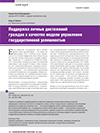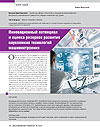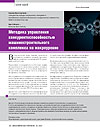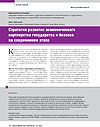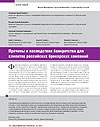Security Strategy for the Russian Financial and Economic System: Problems and the Ways of Solution
DOI: 10.33917/es-7.165.2019.134-141
The article presents the scientific approach to analysis of problem issues in the security sphere of the Russian financial and economic system. It has been reviewed the some important aspects of statistics, analysis of nonlinear processes, the construction of information and mathematical models of law enforcement unit practice, forecasting and strategic decisions development. Shows the ways to improve efficiency of security strategy for the Russian financial and economic system control.







